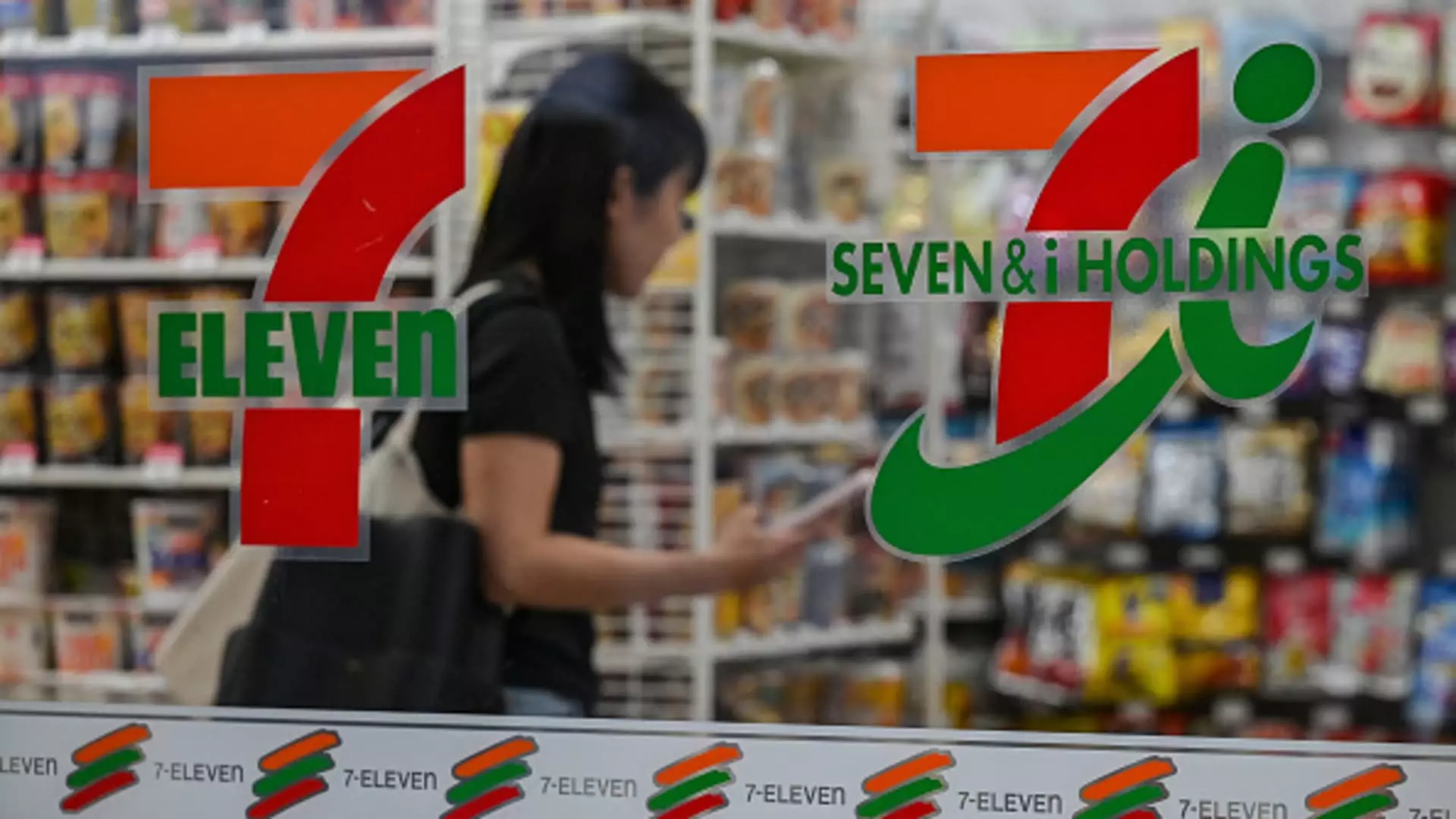In the ever-evolving landscape of the retail sector, Japan’s Seven & i Holdings is navigating a storm of financial recalibration and external pressures that have led the company to reshape its strategic vision. As the Japanese convenience retail giant slashes its profit forecasts while initiating significant restructuring plans, a closer examination reveals the multifaceted challenges and opportunities the company faces.
Seven & i Holdings has recently adjusted its earnings projections for the fiscal year ending February 2025, dramatically reducing its anticipated net income from 293 billion yen ($1.95 billion) to just 163 billion yen ($1.09 billion). This staggering 44.4% decrease comes on the heels of a challenging first half, where the company reported a net profit of 52.24 billion yen against a revenue of 6.04 trillion yen. Despite surpassing sales expectations, profit levels fell short, with a notable gap between actual earnings and the projected guidance of 111 billion yen.
The root of this poor performance can be traced to shifts in consumer behavior, particularly in overseas markets where buyers are adopting more cautious spending habits. This trend poses a critical concern for a company that relies heavily on foot traffic and consumer expenditure in its convenience stores. Furthermore, Seven & i reported a significant charge of 45.88 billion yen due to the divestment of its Ito-Yokado Online Supermarket, signaling ongoing operational challenges that are impacting profitability.
In an effort to streamline operations and address the pressures imposed by its investors, Seven & i is embarking on a major restructuring initiative. The corporation has proposed spinning off non-core segments into a new subsidiary as part of a broader strategy designed to consolidate its myriad of business units. This restructuring will group together 31 units under an intermediate holding company focused on the supermarket sector and specialty retail.
This move is not merely a reaction to internal financial difficulties but is significantly driven by external pressures, particularly from activist investors who are advocating for a more nimble and focused corporate structure. By realigning its core business identity, Seven & i aims to enhance operational efficiency and shareholder value in an increasingly competitive market.
Adding to the complexity of Seven & i’s situation is the looming threat of a takeover bid from Canada’s Alimentation Couche-Tard (ACT). Following an initial offer that was firmly rebuffed, ACT returned with a revised proposal, increasing their bid to approximately 18.19 dollars per share from the previous 14.86 dollars. This new offer would value Seven & i at an impressive 7 trillion yen but also puts pressure on the company to reconsider its strategic footing.
In September, Seven & i classified itself as a “core business” under Japan’s Foreign Exchange and Foreign Trade Act in order to maintain regulatory oversight over foreign investments. This designation requires foreign entities to notify the Japanese government if seeking a 1% stake, thereby providing an additional layer of protection against unwelcome acquisitions. However, industry experts caution that ACT’s renewed interest could escalate into a more aggressive takeover attempt if negotiations fail again.
The stock market reaction to ACT’s interest has been notable, with Seven & i’s shares climbing over 33% since the announcement of the Canadian operator’s initial bid. The revised offer is seen by many investors as an indication of ACT’s commitment to securing Seven & i, offering a 53% premium on share values prior to the initial approach. This has led to a wave of speculation regarding the sentiment of shareholders, many of whom may feel unfulfilled by the company’s current management strategies.
Critics within the investment community are already suggesting that if negotiations between Seven & i and ACT stall indefinitely, activist investors may seize the opportunity to influence a shift in board composition. This scenario could further complicate Seven & i’s efforts to stabilize its financial position and clarify its strategic direction.
As Seven & i Holdings grapples with profound restructuring challenges and external acquisition pressures, the upcoming months will be crucial for determining the company’s long-term strategy. With a shrinking customer base overseas and substantial investor scrutiny, the firm must navigate carefully to uphold its legacy and future viability. The interplay between restructuring efforts and potential takeover bids will not only shape the company’s immediate financial landscape but will also influence its standing in the global retail market for years to come.

